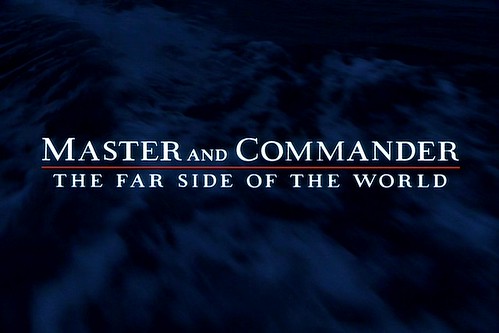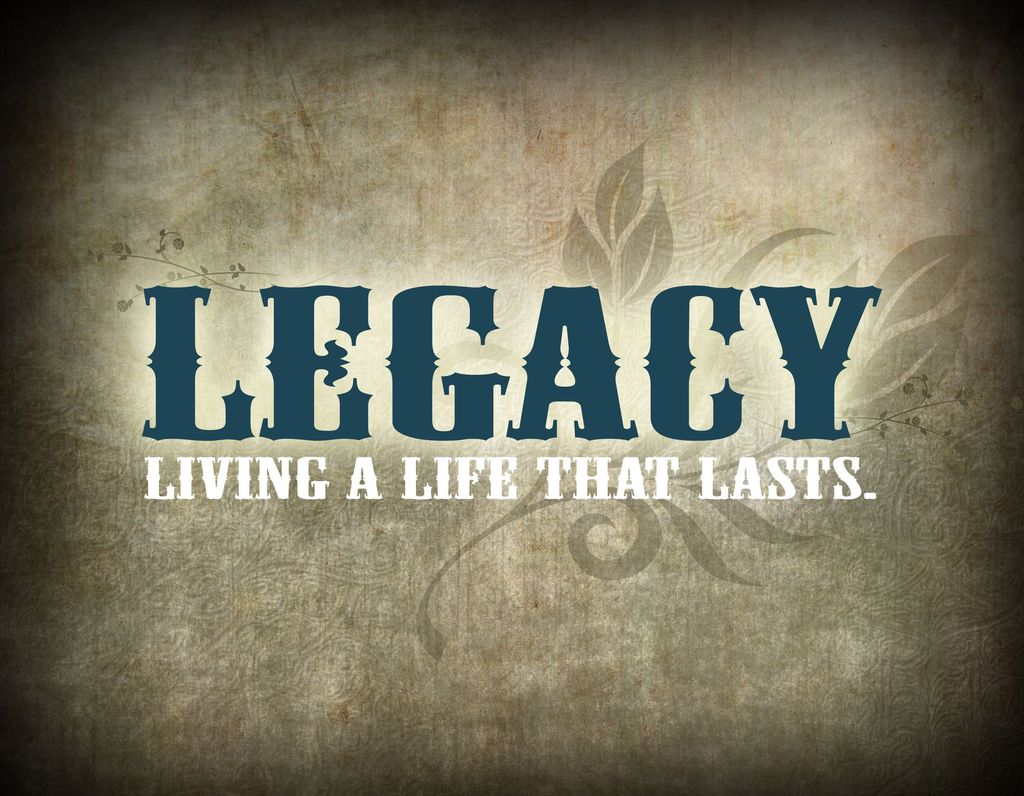
Starling Lawrence, a towering figure in American publishing whose acute editorial insight has helped shape the literary landscape for over half a century, passed away on August 21 at New York-Presbyterian Hospital. He was 82 years old and had been a transformative force at W.W. Norton & Company, where he served as editor-in-chief and subsequently vice chairman, leaving an indelible mark on numerous authors and millions of readers. His demise, following a brief illness, signifies the conclusion of an era characterized by a rare amalgamation of exacting taste and profound generosity.
Mr. Lawrence possessed an almost supernatural ability to identify and nurture narratives that would profoundly resonate with the public. Through his endeavors, he transformed promising authors into literary titans, demonstrating a unique foresight that discerned bestsellers in manuscripts overlooked by others. Michael Lewis, one of the many literary luminaries whose careers he significantly influenced, encapsulated this extraordinary talent by stating that Mr. Lawrence had “the storytelling equivalent of perfect pitch.”
This profound impact transcended mere commercial success; Mr. Lawrence advocated for culturally significant works that have become enduring staples in contemporary literature. His editorial philosophy, marked by a willingness to “swing for the fences,” ushered in an unparalleled era of growth and distinction for W.W. Norton. We shall now delve into the foundational aspects of his remarkable career, exploring the methods and milestones that solidified his legendary status in the world of books.

1. **A Career Spanning Five Decades at W.W. Norton & Company** Starling Lawrence’s tenure at W.W. Norton commenced in 1969, a period that would extend over five decades and witness his ascent through the ranks to become one of the industry’s most influential editors. He initiated his career as an assistant editor, a position that entailed the meticulous task of reviewing unsolicited manuscripts. This formative experience, as he frequently recounted, was instrumental in cultivating the discerning judgment that would characterize his illustrious career.
His leadership trajectory was characterized by a consistent upward trajectory, reflecting his substantial contributions to the firm. In 1989, he was appointed executive editor of the Norton trade department, a recognition of his burgeoning influence and success in acquiring significant titles. This was succeeded by a promotion to editor-in-chief in 1993, where he assumed leadership of the trade department, further solidifying his reputation as a visionary.
By 2000, Mr. Lawrence’s strategic significance to Norton had been formally acknowledged with his appointment as vice chairman, a role he occupied until 2011, when he relinquished managerial duties. Despite this transition, his ardor for books and authors remained unabated; he persisted in acquiring and editing books as an editor-at-large until his demise. Julia Reidhead, Norton’s chairman and president, succinctly encapsulated his profound institutional impact, stating, “It is impossible to overstate the effect Starling Lawrence has had on Norton.”
His enduring presence and profound engagement with the publishing house were conspicuous even in recent years, such as in 2023, when he was photographed alongside Michael Lewis at a party commemorating W.W. Norton’s 100th anniversary. This sustained involvement underscored the personal and professional tapestry he wove into the company. Drake McFeely, another former chairman and president, emphasized this transformation: “Until Starling Lawrence assumed leadership, the trade department experienced occasional bestsellers. During the Lawrence era, the department came to rely on its regular bestsellers, which, in turn, elevated the rest of the distinguished list.” This sustained period of unparalleled growth and success firmly established Norton’s reputation for nurturing commercially successful and culturally significant works, a direct testament to Lawrence’s steadfast vision.

2. **The Art of the Slush Pile: A Formative Editorial Experience** Early in his career, Starling Lawrence undertook a task that many in the publishing industry regarded as thankless: meticulously sifting through the “slush pile” of unsolicited manuscripts. This seemingly mundane duty, often relegated to junior staff members, proved to be a crucible for his editorial prowess. He perceived it not as a chore, but as an essential training ground that inculcated patience and attentiveness.
Mr. Lawrence himself reflected on this period, stating, “The odds of finding something publishable there were notoriously low, almost infinitesimal, but the work taught me an important lesson about patience and paying attention to the task, regardless of its nature.” It was within this vast expanse of submissions, where most perceived only dross, that Lawrence applied his meticulous attention, effectively “panning for gold.” This discipline refined his ability to detect a glimmer of brilliance in unexpected places.
This singular focus on the inherent quality of the writing, rather than external credentials, was a hallmark of his approach. Michael Lewis eloquently described this cultivated discernment, noting that Lawrence had honed “a voice that exhibits endless patience for what genuinely interests him.” It was this discerning ear, developed through countless hours of rigorous reading, that enabled him to unearth literary treasures from what others deemed an insurmountable heap.
Indeed, his diligent excavation of the slush pile yielded an impressive array of foundational works that subsequently achieved significant acclaim. Among his early discoveries were Richard North Patterson’s debut novel, The Lasko Tangent, which laid the foundation for a career of legal bestsellers. He also unearthed James Grady’s suspenseful Six Days of the Condor, later adapted into the iconic film Three Days of the Condor starring Robert Redford. Furthermore, Lawrence discovered Burton G. Malkiel’s A Random Walk Down Wall Street, a “very lively and useful guide to personal finance” that has become a perennial favorite for both Norton’s trade and college divisions, enduring as a classic in its field. These early triumphs underscored his extraordinary capacity to perceive potential where others saw none, transforming the traditionally neglected slush pile into a wellspring of future bestsellers.

3. **The Discovery of Michael Lewis: A Partnership Forged from “Liar’s Poker”** The editorial relationship between Starling Lawrence and Michael Lewis stands as one of the most celebrated and productive partnerships in modern publishing. Their collaboration commenced in 1987, when Lewis, then a young bond salesman at Salomon Brothers, approached Norton with a book proposal for what he initially conceived as a “stodgy history of Wall Street.” It was Lawrence who discerned the deeper, more personal narrative underlying the surface.
Lawrence’s unparalleled editorial insight transformed Lewis’s concept into an electrifying, insider’s account of Wall Street’s excesses. Lewis himself vividly reminisced about this pivotal intervention, stating, “Star coaxed out of me a memoir that scandalized Wall Street and rendered me persona non grata there for nearly a decade.” This astute guidance culminated in the creation of Liar’s Poker, a book that not only became an instant bestseller but also redefined a genre, providing an unprecedented glimpse into the cutthroat world of finance.
The acquisition of Liar’s Poker for a modest $40,000 proved to be extraordinarily prescient, initiating a 35-year collaboration that would yield an astonishing 17 books. This initial success was far more than a mere transaction; it was the inception of a literary partnership that would profoundly shape Michael Lewis’s career and produce a series of nonfiction blockbusters. Lawrence’s ability to discern the true narrative potential in Lewis’s early ideas laid the groundwork for a career that continues to captivate millions.
The bond between editor and author transcended the professional realm, evolving into a profound personal and creative symbiosis. Lewis’s profound respect for and reliance on Lawrence’s judgment were evident in his poignant reflection: “When I sit down to write, the only voice I hear in my head is Star’s.” This sentiment underscores the editor’s role not merely as a gatekeeper of quality but as an integral part of the author’s creative process, a guiding presence whose influence became an internal compass for Lewis’s inimitable storytelling.

4. **Nurturing Michael Lewis’s Nonfiction Empire: From Wall Street to Global Phenomena** The enduring partnership between Starling Lawrence and Michael Lewis blossomed into an extraordinary output of nonfiction masterpieces that consistently captured the public imagination and reshaped the understanding of complex subjects. For 35 years, Lawrence served as Lewis’s steadfast editor, overseeing the development of a remarkable 17 books, each distinguished by rigorous reporting, compelling narratives, and profound cultural relevance. This collaboration became a touchstone for narrative nonfiction, spanning diverse fields from finance to sports and public health.
Among the most acclaimed works to emerge from this partnership are The Big Short: Inside the Doomsday Machine (2010), a gripping account of the bursting housing bubble that foretold the 2008 financial crisis. Another landmark title was Moneyball: The Art of Winning an Unfair Game (2003), which chronicled the Oakland Athletics’ general manager Billy Beane’s innovative, statistical approach to achieving baseball success, transforming the sport’s conventional wisdom. These books not only achieved bestseller status but also spawned award-winning film adaptations, extending their cultural reach even further.
Their collaboration continued to produce timely and impactful works, including The Premonition (2021), which delved into the early onset of the Covid-19 pandemic and the unsung heroes who endeavored to warn the nation. Lewis’s oeuvre, under Lawrence’s guidance, demonstrated an uncanny ability to distill intricate subjects into accessible, engaging, and often revelatory stories. Lawrence’s editorial hand was crucial in sculpting these amorphous ideas into “sizzling, culturally significant potboilers,” as described in initial reports of his passing.
The depth of Lawrence’s editorial prowess was consistently lauded by Lewis, who famously attributed his own narrative clarity to his editor’s “storytelling equivalent of perfect pitch.” This implied that Lawrence could instinctively grasp the essence of a story and guide its development with unparalleled precision. An illustrative anecdote recounts Lewis struggling to explain the plot of The Premonition to Lawrence, finally saying, “Oh hell, I can’t explain it; I’d better just go write it.” To which Lawrence calmly replied, “That sounds like a wonderful idea,” empowering Lewis to pursue his narrative instincts with confidence, knowing he had a discerning and trusting editor at his side.

5. **Unearthing Patrick O’Brian’s Aubrey-Maturin Series: A Nautical Saga’s Rise** Starling Lawrence’s editorial acumen extended far beyond familiar territory, leading him to champion an author whose work would achieve global acclaim despite initially being an obscure discovery. His personal experience with nautical matters was limited to a “dismal summer spent taking sailing lessons on Fishers Island,” an unlikely background for the man who would elevate Patrick O’Brian’s epic Royal Navy adventure series to American prominence. Yet, it was through a cousin’s recommendation that Lawrence first encountered O’Brian’s work, marking a serendipitous beginning to a monumental publishing success.
Following this tip, Lawrence visited O’Brian’s agent in London, a journey that proved profoundly fruitful. On his return flight to New York, he immersed himself in The Reverse of the Medal, one of O’Brian’s novels. This rapid and complete absorption of the narrative underscored his immediate recognition of the series’ immense potential. He swiftly acquired the U.S. rights to the entire collection of “swashbuckling maritime novels,” a daring move for an author who was then relatively unknown in the American market.
The centerpiece of this acquisition was Master and Commander (1990), which, under Lawrence’s stewardship, quickly ascended to bestseller status. The novel, and indeed the entire 21-volume Aubrey-Maturin series, captivated readers with its meticulously researched historical detail, gripping adventures, and richly drawn characters. The series’ popularity culminated in a critically acclaimed, Oscar-winning film adaptation of Master and Commander, starring Russell Crowe, which solidified its place in popular culture.
This remarkable discovery exemplified Lawrence’s unique ability to uncover future bestsellers in “unlikely places,” including, as W.W. Norton described, “the dusty top shelf of an agent’s bookcase.” His willingness to look beyond conventional avenues and trust his own discerning judgment enabled him to transform a niche literary gem into a mainstream phenomenon, proving that his editorial reach was as expansive as his vision.

6. **The Perfect Storm: Championing Sebastian Junger’s Breakthrough Narrative** Starling Lawrence’s extraordinary talent for spotting compelling narratives in their nascent forms was dramatically illustrated by his acquisition and cultivation of Sebastian Junger’s The Perfect Storm. The genesis of this bestselling phenomenon began when Lawrence read a powerful magazine article by Junger, detailing a terrifying Atlantic storm in 1991. Recognizing its inherent drama and human interest, Lawrence promptly purchased the book rights for $35,000, a move that would yield immense returns, both commercially and critically.
Lawrence’s editorial guidance was instrumental in transforming the article into a sprawling, multipart narrative. Junger himself lauded Lawrence’s unique ability to refine a manuscript with surgical precision. “As an editor,” Junger recalled in an email, “he seemed to grasp the essence of a manuscript at a glance and deliver his advice like an ax-stroke: a few words scrawled in the margins, a note somewhere, some big X’s, and suddenly he had understood what you were trying to do and had reimagined the entire thing in its proper form.” This vivid description underscores Lawrence’s direct, incisive, and profoundly effective approach to editing.
The collaboration extended to the very structure of the book, with Junger crediting Lawrence in The New York Times for his crucial assistance in integrating the narrative’s multiple storylines. This meticulous shaping ensured that the complex interplay of human stories and natural forces within The Perfect Storm coalesced into a cohesive and unforgettable reading experience. The result was a book that became a massive bestseller, captivating millions and further solidifying Lawrence’s reputation for championing culturally significant works.
The Perfect Storm epitomized Lawrence’s knack for taking what might be considered “amorphous antecedents” and fashioning them into “sizzling, culturally significant potboilers,” as described in his obituary. His ability to perceive the broader potential and guide its realization was a defining characteristic, making him an invaluable collaborator to authors like Junger in bringing their most powerful stories to the widest possible audience.

7. **Expanding the Pantheon: Nurturing a Diverse Array of Acclaimed Authors** Starling Lawrence’s editorial brilliance was not confined to a handful of marquee names; his impact extended across a broad spectrum of literary talent, providing an early, crucial boost to numerous authors who would subsequently achieve significant acclaim. His keen discernment enabled him to recognize the latent potential in writers across diverse genres, fostering careers that have enriched the literary world for decades. This broader influence underscored his commitment to uncovering compelling narratives wherever they lay.
Beyond the widely celebrated partnerships with Lewis, O’Brian, and Junger, Lawrence’s discerning eye nurtured other formidable talents. He played a pivotal role in the careers of authors such as Michael Ondaatje, whose lyrical prose adorned The English Patient, and Nicole Krauss, renowned for her evocative novel The History of Love. His support assisted these writers in finding their voice and reaching a wider readership, demonstrating his versatile comprehension of literary merit.
David Ignatius, a renowned author and columnist, also benefited from Lawrence’s exacting editorial approach. Mr. Ignatius recounted Lawrence’s feedback as “bracing and occasionally lacerating — but almost always right,” with the editor famously inscribing “’Must we?’” next to a phrase he deemed trite. This level of meticulous engagement, irrespective of an author’s stature, was a hallmark of Lawrence’s dedication to literary excellence and precision.
Other notable authors who flourished under Lawrence’s guidance included Vincent Bugliosi, David McCloskey, Mary Lee Settle, and A.N. Wilson. His ability to connect with such a diverse group of writers, understand their unique voices, and refine their manuscripts speaks volumes about his profound literary sensibility and the depth of his contribution to contemporary literature. His legacy is truly interwoven into the fabric of many celebrated authorial careers.

8. **The Lawrence Editorial Ethos: Precision, Patience, and “Swinging for the Fences”** Starling Lawrence’s approach to editing was as distinctive as it was effective, characterized by a unique blend of exacting taste, profound patience, and an ambitious vision. Unlike many of his peers, who might have favored safe bets, Lawrence was renowned for his willingness to “swing for the fences,” as observed by Don Lamm, a former chairman and president of Norton. This bold philosophy meant he consistently aimed for “home runs,” thereby transforming the publishing house’s trade department.
His editorial method emphasized a profound, almost instinctive understanding of a manuscript’s core. Brendan Curry, director of the Norton trade group, underscored this by stating, “In a business consumed by fads and fashions, he dedicated himself to what, as he said, was ‘on the page.’” This unwavering focus on the inherent quality and integrity of the writing enabled him to cut through superficialities and identify genuine narrative power.
Lawrence’s renowned pencil-wielding style was legendary, often yielding comments that were “bracing and occasionally lacerating — but almost always right,” as recalled by David Ignatius. This directness, coupled with an underlying generosity, ensured that authors received guidance that was both honest and deeply constructive, even when challenging. His edits were designed to elevate the prose, stripping away anything that diluted its impact.
Furthermore, Lawrence regarded the painstaking work of sifting through unsolicited manuscripts as a formative experience, teaching him “an important lesson about patience and paying attention to the job, no matter what it is.” This cultivated discernment, described by Michael Lewis as training “a voice that has endless patience for what does interest him,” was central to his ability to unearth diamonds in the rough and elevate them to their fullest potential.

9. **Beyond the Editor’s Desk: Lawrence as an Author** While Starling Lawrence is celebrated for his unparalleled editorial career, he also nurtured and eventually realized his own literary aspirations, becoming an author himself later in life. This personal journey into writing provided him with a deeper understanding of the creative process, enriching his perspective as an editor. His decision to write, however, came after a significant period dedicated to shaping the works of others.
Mr. Lawrence did not commence writing until he was in his 50s, after his three children, who were triplets, had grown up. This timing enabled him to fully devote himself to his craft, cultivating his voice over a decade before submitting any of his work for publication. Such patience, reflecting the advice he often offered to his authors, underscored his profound respect for the literary process and the meticulous effort required to produce high-quality writing.
Among his literary contributions are four works of fiction: a short-story collection titled Legacies (1996), and the novels Montenegro, The Thief of Words, and The Lightning Keeper (2006). Both Legacies and Montenegro received starred reviews from Publishers Weekly, a testament to his innate storytelling ability and the high standards he applied to his own prose. The Lightning Keeper explored electricity’s transformative role in the Industrial Revolution.
Lawrence reflected on his motivations for writing, noting, “My answer to the question ‘Why do you write?’ used to be ‘to keep myself sane,’ but I’m not sure that process is working so well.” He later added, “My answer now would probably be ‘so that I know what I think about things and the relationships between people.’ I feel that I only truly know something through writing about it.” These insights reveal a deeply introspective individual for whom writing was a vital means of self-discovery and understanding.

10. **An Enduring Legacy: The Immeasurable Impact on Literature and Publishing** Starling Lawrence’s passing marks the end of an era, but his influence on W.W. Norton & Company and the broader publishing world constitutes an enduring legacy that continues to resonate. His ability to transform nascent ideas into “sizzling, culturally significant potboilers” from “amorphous antecedents” fundamentally reshaped the landscape of narrative nonfiction and fiction, setting a high standard for editorial excellence.
Julia Reidhead, Norton chairman and president, succinctly captured this profound impact, stating, “It is impossible to overstate the effect Starling Lawrence has had on Norton.” This sentiment reflects not only his long tenure and numerous bestsellers but also the indelible mark he left on the company’s culture and its distinguished roster of authors. He cultivated a “family” atmosphere among his colleagues, integrating them into the institutional fabric.
His legacy is characterized by an unwavering dedication to the craft of writing and a rare gift for discovering talent in the most unlikely of places—from the fabled “slush pile” to an agent’s dusty bookshelf. Lawrence’s editorial vision proved that rigorous attention to “what was on the page,” combined with a willingness to take risks, could result in both critical acclaim and commercial triumph.
In an industry often driven by fleeting trends, Starling Lawrence stood as a titan, whose discerning eye, intellectual honesty, and profound generosity inspired authors and colleagues alike. His contributions forged a path for countless stories to reach millions of readers, ensuring his work as an editor will be remembered as a cornerstone of modern literary history, a true architect of bestsellers and a champion of timeless narratives.
Starling Lawrence’s life, marked by dedication, insight, and a profound love for literature, serves as a powerful reminder of the irreplaceable role an exceptional editor plays in shaping the cultural narrative. His contributions transcend the individual books he edited; he cultivated an ethos of literary excellence that will continue to inspire generations of writers and publishers. As the publishing world reflects on his remarkable career, it is clear that his legacy is not merely one of bestsellers, but of enduring literary artistry.




